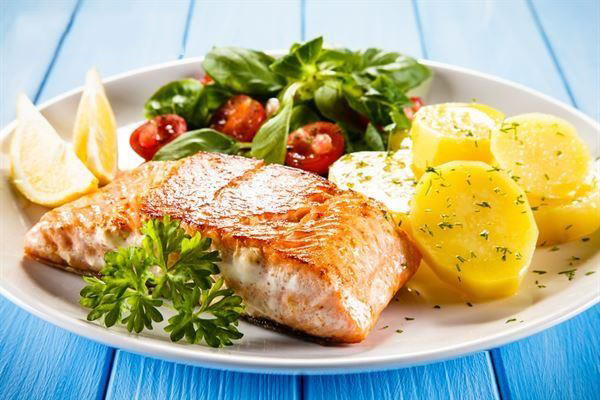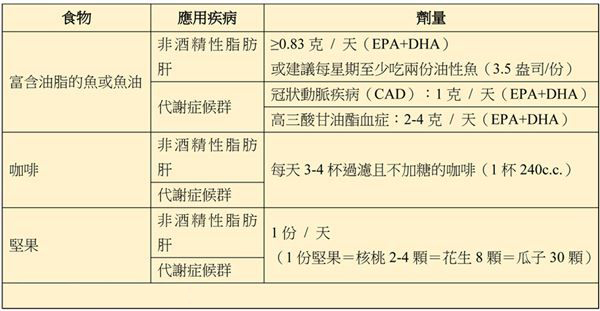Can drinking coffee improve fatty liver? The dietitian will reveal your secret.
For professional baristas, please follow the coffee workshop (Wechat official account cafe_style)
Is your liver getting fat?
Recently, several sample surveys based on urban population show that the incidence of fatty liver among adults in China is between 12.5% and 35.4%, and there is a trend of getting younger. At present, there are at least 200 million people with fatty liver in China! Among them, about 10% of patients will develop liver cirrhosis, and 12.8% of patients will develop liver cancer after three years!
Fatty liver, which has replaced viral hepatitis, has become the largest liver disease in China and even in the world. According to folk legend, one of the keys to the elimination of fatty liver is coffee, the favorite drink of modern people, but is coffee really so magical? Let's listen to what the dietitian says!

Can drinking coffee improve fatty liver? The dietitian came to reveal the secret.
Only fat people have fatty liver? Skinny, don't worry too soon!
The accumulation of fat in liver cells makes fat account for more than 5% of the liver weight, which is called "fatty liver". Zheng Shijia, a dietitian, said that in recent years, Chinese people have been affected by a "sedentary lifestyle,"Western diet," and "heredity," along with the prevalence of metabolic diseases such as obesity, dyslipidemia, insulin resistance, and hypertension, resulting in triglyceride synthesis and steatosis in the liver, resulting in a high number of patients with "non-alcoholic fatty liver disease" (non-alcoholic fatty liver disease,NAFLD).

The accumulation of fat in liver cells makes fat account for more than 5% of the liver weight, which is called "fatty liver".
It is worth noting that it is not only overweight or obese people who are prone to fatty liver! Even if the figure is standard or even slim, it can lead to hidden obesity due to a sweet tooth (lots of carbohydrates) or sugary drinks (fructose), resulting in a situation in which the body weight and BMI seem normal, but the body fat has long been exceeded. This phenomenon of "the best in the body and the failure in it" will greatly increase the risk of developing fatty liver.
Is it really effective to reverse fatty liver and drink coffee?
If fatty liver is not detected and treated early, it is easy to continuously stimulate the liver to produce inflammatory symptoms and oxidative pressure due to wrong diet and bad living habits, which in turn increases the risk of non-alcoholic steatohepatitis (non-alcoholic steatohepatitis,NASH), liver cirrhosis and liver cancer, causing a vicious circle, and even leading to undesirable diseases such as type 2 diabetes, atherosclerosis and cardiovascular disease.

Caffeine in coffee can reduce the abnormally elevated liver function index due to fatty liver.
Fortunately, fatty liver has a chance to reverse! Apart from losing weight, increasing exercise, adjusting daily routine and diet control, it is said that drinking coffee can also prevent and improve fatty liver. is this true? Indeed, recent literature shows that drinking coffee can prevent the development of "nonalcoholic fatty liver disease, especially in reducing the severity of fibrosis in nonalcoholic steatohepatitis," says Zheng Shijia, a dietitian. In terms of intake, the recommended amount is 3 to 4 cups of coffee a day, each cup of 240c.c.
Coffee eliminates fatty liver dietitians teach tips
Coffee contains a variety of bioactive ingredients, such as caffeine, chlorogenic acid, caffeic alcohol and fatty acids, among which caffeine can reduce the abnormally elevated liver function index (SGOP, SGPT) caused by fatty liver. Chlorogenic acid has strong antioxidant capacity, which can not only protect the liver from fat accumulation and oxidative damage, but also reduce the metabolic risk of type 2 diabetes and cardiovascular disease. However, coffee oil contains caffeine alcohol, which will increase the bad cholesterol LDL in the body, so it should be filtered and removed as far as possible.
In this regard, Zheng Shijia dietitian believes that the easiest way is to choose black coffee that is filtered by filter paper and without sugar (too much sugar will be stored in the body in the form of fat) and cream. If you are sensitive to caffeine and produce uncomfortable symptoms such as palpitations, it is recommended to switch to white coffee (espresso + milk) or latte (espresso + milk + foam) and use milk dilution to reduce caffeine-induced discomfort.
Reduce fatty liver, coffee and 2 "god teammates"!
In modern nutrition, more and more evidence shows that increasing the amount of nutrients in the diet can improve non-alcoholic fatty liver disease. In addition to the above coffee, Zheng Shijia, a dietitian, introduced two good natural ingredients to help eliminate fatty liver, namely, fatty fish and nuts.

Omega-3 polyunsaturated fatty acids rich in fish oil can reduce liver lipid accumulation, improve insulin sensitivity and have anti-inflammatory effects.
(1) Fat-rich fish: for example, mackerel, tuna, salmon, Sturgeon, sardines, herring, trout, etc., these fish ingest marine plants to synthesize omega-3 fatty acids. Omega-3 polyunsaturated fatty acids rich in fish oil can reduce liver lipid accumulation, improve insulin sensitivity and have anti-inflammatory effects.
(2) Nuts: nuts are rich in antioxidant vitamin E, dietary fiber, high concentrations of phytosterols and polyphenols (such as phenolic acids, ellagic acid and flavonoids), which can reduce the concentration of bad cholesterol and free radicals in serum and improve dyslipidemia, as well as liver adipocytic degeneration and inflammation.

Want to improve fatty liver? The dietitian recommends three good things.
Important Notice :
前街咖啡 FrontStreet Coffee has moved to new addredd:
FrontStreet Coffee Address: 315,Donghua East Road,GuangZhou
Tel:020 38364473
- Prev

Why is Starbucks so red? Because he sells not only coffee, but tea and wine.
Professional barista communication, please pay attention to coffee workshop (Weixin Official Accounts cafe_style) emphasizes experience economy and diversified innovation, which has always been Starbucks 'most important development strategy. Besides coffee, Starbucks has tried to sell tea and wine, which is precisely the embodiment of this distinctive characteristic. Starbucks actually sells tea as well as coffee, but Teavana's tea business has not developed.
- Next

Nespresso launches new limited edition coffee BARISTA releases your barista soul
Professional barista communication please follow the coffee workshop (Wechat official account cafe_style) Nespresso launched a new limited edition coffee BARISTA release your barista soul perfectly present the art of espresso and milk release your barista soul perfect presentation of espresso and milk art just at the end of the World University Games, athletes sprinkle sweat,
Related
- Can I make coffee a second time in an Italian hand-brewed mocha pot? Why can't coffee be brewed several times like tea leaves?
- Hand-brewed coffee flows with a knife and a tornado. How to brew it? What is the proportion of grinding water and water temperature divided into?
- What is the difference between Indonesian Sumatra Mantinin coffee and gold Mantinin? How to distinguish between real and fake golden Mantelin coffee?
- What does bypass mean in coffee? Why can hand-brewed coffee and water make it better?
- Unexpected! Ruixing Telunsu lattes use a smoothie machine to foam milk?!
- % Arabia's first store in Henan opens into the village?! Netizen: Thought it was P's
- Does an authentic standard mocha coffee recipe use chocolate sauce or powder? Mocha Latte/Dirty Coffee/Salty Mocha Coffee Recipe Share!
- What is the difference between Vietnam egg coffee and Norway egg coffee? Hand-brewed single product coffee filter paper filter cloth filter flat solution!
- What is the difference between sun-cured and honey-treated coffee? What are the differences in the flavor characteristics of sun-honey coffee?
- How to make Italian latte! How much milk does a standard latte use/what should the ratio of coffee to milk be?

